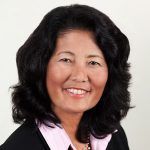February 16, 2012
Thank you to those who attended our February 15th Funding Forum. We appreciated the opportunity to meet you and share our vision for advancing health and wellness for those in need.
Rob McCray, chairman of the AHF board, started the morning by speaking to AHF’s worldview. He spoke about the increasing need for services and the reduced federal and state resources, pointing to the need for organizations to increase capacity and do more with existing resources.
As an organization with a $63 million endowment serving a population of at least 500,000 (those living at or below 250% FPL in San Diego and Imperial County), AHF must be strategic in maximizing their own very limited resources. McCray noted that in any given year AHF may spend no more than 5% of their endowment. To demonstrate a commitment to reducing costs and increasing efficiency, McCray noted that AHF began moving toward reducing their operational expenses by 50%. This goal is nearly realized.

McCray also spoke about the Community Forum, an interactive discussion platform on AHF’s website. He described the goal of the Forum as “the central, interactive platform to share notes, provide critical analysis, and promote self-awareness to better serve our target populations.” He stressed that AHF believes strongly that solutions to our challenges will come not from the AHF board or leadership, but from the community itself. McCray identified a secondary goal of the Forum as bridging the divide between the safety net populations, technology, and those working in the social sector. With a streamlined information exchange for social service providers, those working in this field can have greater support in doing their work.
McCray introduced Nancy Sasaki, AHF’s executive director. Sasaki has been with AHF for six months. Previously, she spent nearly 30 years working in leadership and executive roles with Planned Parenthood. Sasaki began by giving a report of the results of a community survey that had been conducted in December 2011.
She noted the positive highlights; that the community associates AHF with a long history, appreciates that the foundation is local, and the majority believe that AHF is a good partner. Sasaki noted that she intends to increase and strengthen these reports.
Sasaki also noted that the community reported that they are confused about AHF, believe the foundation has lost its way and focus, and do not clearly understand what AHF wants to fund or how to access those funds. Sasaki made a pledge to do her best to clarify these questions and also to restore the visibility that AHF may have lost in the community.

Sasaki then went on to provide an overview of AHF’s three grantmaking programs. The Responsive Grants program provides responsive funding of up to $25,000 to time sensitive issues, opportunities to leverage other collaborative funds, and leadership and organizational development opportunities
The Innovation Initiative Grant program offers funding of up to $1,000,000 to an organization or group of organizations creating systemic change in San Diego and Imperial County.
The Mission Support Grant program is now accepting applicants.
This program provides core operating support of between $25,000-$100,000 to organizations that are challenging the status quo, improving quality and capacity, and whose mission is in alignment with improving health and wellness of those in need. Click here for an online application.
For more information on AHF’s grant programs, click here.
Related News

Jul 13, 2023
Grants, Pro Bono Consulting & Conferences
Partner News + Opportunities Grants, Pro Bono Consulting and Conferences [...]

Jul 12, 2022
Imperial Valley Wellness Foundation: Opens 2022 Mission Support Applications
Imperial Valley Wellness Foundation Opens Mission Support Funding Application El [...]

Jun 14, 2022
AHF Job Opening
Wanted: Senior Director of Strategy & External Relations and other [...]
